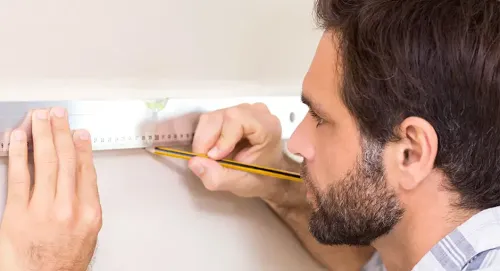There’s a growing trend among homeowners that will someday become as commonplace as installing granite countertops as more discover its benefits. That trend: obtaining a HERS® score.
What Is A HERS Score?
The Home Energy Rating System (HERS) Index is a nationally-recognized scale that measures a home’s overall energy performance, providing a numerical score. Building industry professionals think of it as the “miles-per-gallon” of your home, or rather, how efficient your home can run. The current index starts at 0 and goes up to 150. As of 2018, the average HERS score of a new-construction single-family home is 61. The lower your score, the more efficient your home. For you, this means long-term savings in your wallet.
New cabinets and flooring certainly bring a lot to a home’s visual appeal. But looking beyond aesthetics, your best investment will be in systems that help your home use less energy.
Lowering Your HERS Score
A certified Home Energy Rater will assess your home on the following factors:
- Airtightness: the amount of air leaks in your home’s building envelope, or the overall shell of your home (think drywall, insulation, siding, etc.)
- HVAC (heating, ventilation, air conditioning) leakage: the amount of air leakage from your home’s HVAC system (if it’s ducted)
- Insulation: how effective your insulation is in keeping your house warm or cold
- Combustion: any current or potential combustion issues that could be harmful
The good news is that there are a variety of building materials and systems that’ll not only improve your home’s efficiency, but also increase your home’s value and the overall health of your living spaces. Here’s what to consider installing or upgrading:
Heating and Air Conditioning Systems
It’s industry norm that HVAC accounts for 50% of a homeowner’s energy expenses. Investing in an energy-efficient heating and air conditioning system such as Mitsubishi Electric Zoned Comfort Solutions® offers better indoor air quality, comfort and energy savings. These HVAC systems are variable-capacity and only use the precise amount of energy required to help lower your HERS score significantly.
Windows and Doors
Windows and doors help bring the outdoors inside, but you want to make sure that they’re sealed properly and not literally letting the outdoors in through air leakage. Opt for triple-paned glass doors and windows, which are heavy-duty and take some of the energy load off of your HVAC system, whether you’re heating or cooling.
Appliances
Dishwashers, refrigerators and washing machines are all appliances we use daily. That said, it’s easy to forget how their usage affects the overall energy use and performance of your home. When selecting appliances, choose systems that have an efficiency standard, such as Energy Star®. You’ll soon forget the upfront cost of the appliance after enjoying the monthly utility savings.
While these are just a few ways to lower your HERS score, there’s a variety of methods to further increase the performance of your home. Many HVAC contractors and high-performance building teams, such as our Performance Construction Team, can help offer whole-home solutions and advice. If you’re on the fence about investing in your home’s efficiency — think again. As of 2018, 2.4 million homes have been HERS rated with 236,000 of those homes rated in 2018 alone. And the numbers are only expected to go up!









